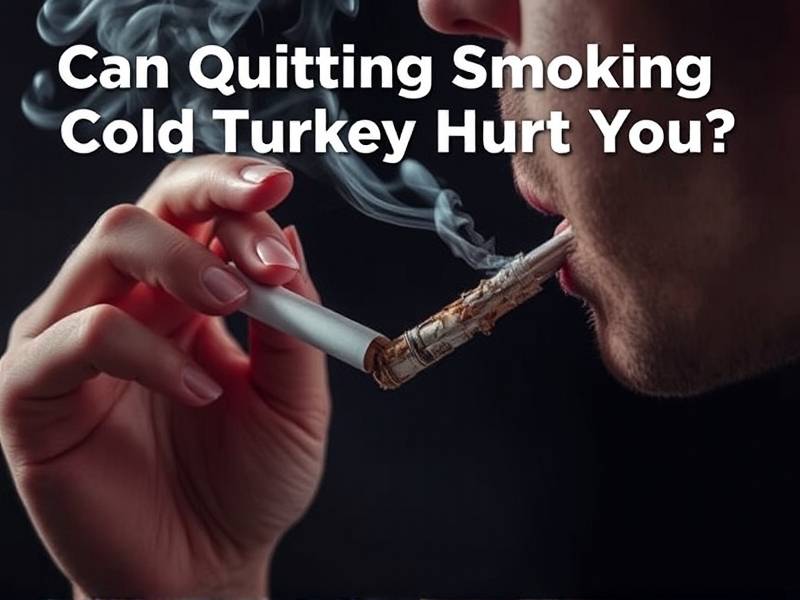Can Quitting Smoking Cold Turkey Hurt You?
Navigating the Cold Turkey Method: Understanding Its Impact on Your Health
Subheading: Is Quitting Smoking Cold Turkey Risky?
Introduction: Quitting smoking is a challenging endeavor, and there are numerous methods to choose from. One popular approach is the cold turkey method, which involves abruptly stopping smoking without the use of aids or substitutes. While many individuals have successfully quit this way, some may wonder if it can potentially harm their health. In this article, we will explore the potential risks and benefits of quitting smoking cold turkey.

- The Cold Turkey Method: What It Involves
The cold turkey method is straightforward: stop smoking immediately without any gradual reduction in the number of cigarettes smoked. This approach can be effective for some individuals, but it also comes with its own set of challenges and risks.
- Potential Risks of Quitting Smoking Cold Turkey
a. Withdrawal Symptoms When you quit smoking cold turkey, your body experiences withdrawal symptoms as it adjusts to the absence of nicotine. These symptoms can include:
- Increased cravings
- Irritability
- Anxiety
- Insomnia
- Fatigue
- Headaches
While these symptoms are typically short-lived, they can be quite uncomfortable for some individuals.
b. Weight Gain One common concern associated with quitting smoking cold turkey is weight gain due to increased appetite and stress-induced eating. However, it's essential to remember that weight gain is a potential risk with any quitting method, not just cold turkey.
c. Relapse Risk Quitting smoking cold turkey can be challenging due to the intense cravings and withdrawal symptoms. For some individuals, this may increase the risk of relapse.
- Potential Benefits of Quitting Smoking Cold Turkey
Despite the risks mentioned above, there are several potential benefits to quitting smoking cold turkey:
a. Immediate Health Improvements Within hours of quitting smoking cold turkey, your body begins to experience immediate health improvements such as lower blood pressure and heart rate.
b. Long-Term Health Benefits Long-term benefits include a reduced risk of heart disease, stroke, lung cancer, and other tobacco-related diseases.
c. Financial Savings Quitting smoking can lead to significant financial savings over time.
- Alternatives to Consider
If you're considering the cold turkey method but worried about potential risks or discomfort, there are alternative methods you might want to explore:
a. Nicotine Replacement Therapy (NRT) NRT includes products like patches, gum, lozenges, inhalers, and nasal sprays that provide controlled doses of nicotine without tobacco smoke.
b. Prescription Medications Medications such as Chantix (varenicline) and Zyban (bupropion hydrochloride) have been shown to help some individuals quit smoking by reducing cravings and withdrawal symptoms.

c. Behavioral Support Programs These programs offer guidance from professionals who specialize in helping people quit smoking through counseling sessions or support groups.
Conclusion:
While quitting smoking cold turkey may come with certain risks and challenges, it's essential to weigh these against the significant long-term health benefits that come with giving up tobacco use altogether. If you're considering this method or exploring alternatives like NRT or prescription medications, consult with a healthcare professional for personalized advice based on your specific needs and circumstances.
